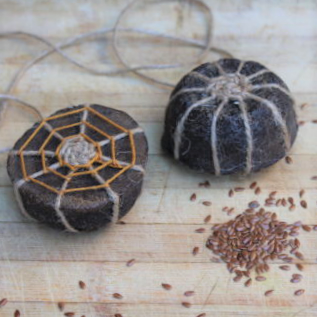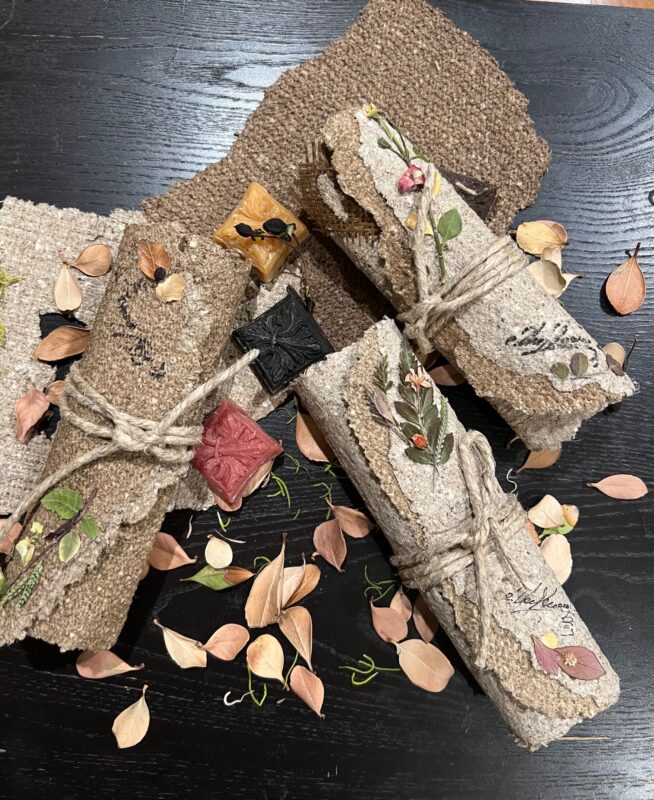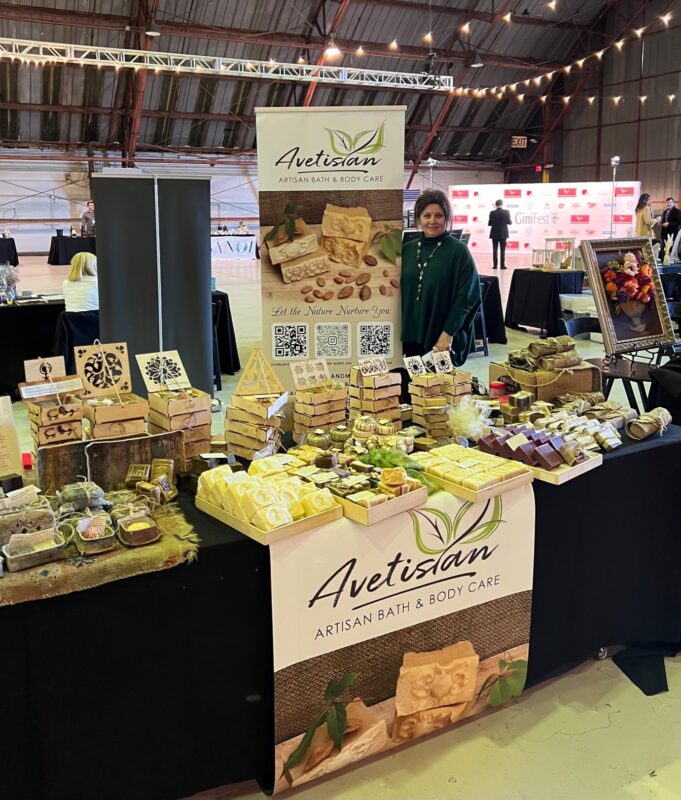LOS ANGELES — When I met Nelli Avetisyan for the first time, my hands were covered with blisters and cracks while I was navigating the endless cycle of washing my toddler’s hands, frantically eliminating the bacteria and dust that she could get while crawling. Nelli examined my damaged fingers, which looked even worse because of scratching, and handed me a cream-colored soap with a carved picture of a goat on it. “It’s a Bezoar goat,” she specified. Catching my puzzled look, she added, “It is good for your hands. Just apply it on them and leave it for half an hour, after which you can wash your hands.” My impromptu “appointment” led me to the journey that Nelli Avetisyan went through which ended with her relocating to the US and turning Avetisyan Artisan Soaps into a permanent business.
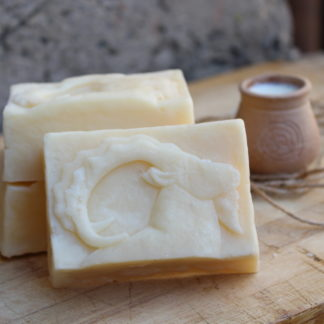
It all started with the concern that grew in Nelli, a pharmacist professor at the Yerevan State Medical University and later at Yerevan State University, about finding chemicals in the water, including traces of medications. “In Armenia, the process of the use of medication is poorly executed. The doctors prescribe it, the pharmacists sell, and the patients use as much as needed or even wanted. But what happens to the rest of the medication that sits in the drawer or expires? No one bears responsibility for that. There are medications that do not disintegrate in thirty years and stay in the water until it reaches the fields of crops absorbing into the soil,” she explains. Nelli found out that fish farming also uses hormones.
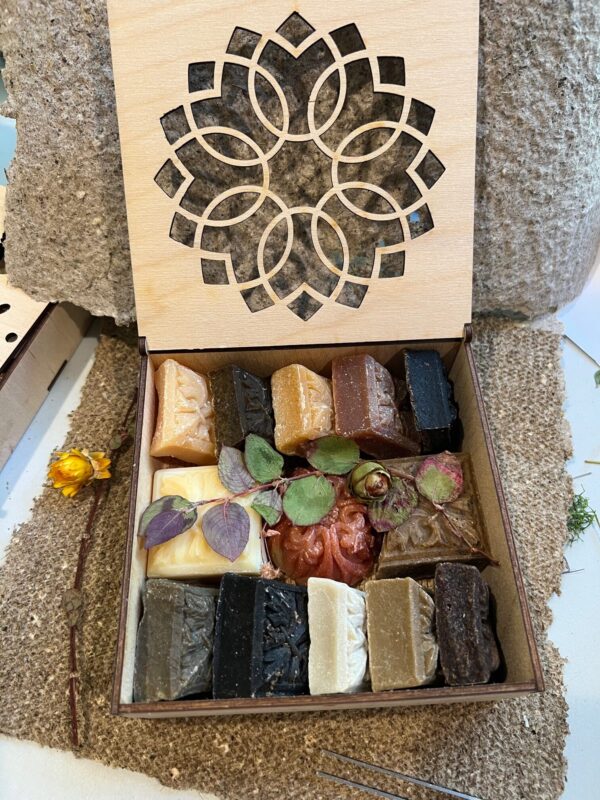
“All the sewage from the hospitals fall into the river Hrazdan. That river nurtures the entire Ararat valley. Besides, all the fishponds are located on both sides of the river. The farmers use a lot of hormones that go into the same river. No one thinks about it!” exclaims Nelli.
In the early 2000s, for seven consecutive years, Nelli did her own research, testing the water by utilizing private labs and her own resources. “I found out that the fishmongers often had fish with two heads, which they carefully cut off and served to the consumers. That was another proof of the hormone use in these farms,” says Nelli.
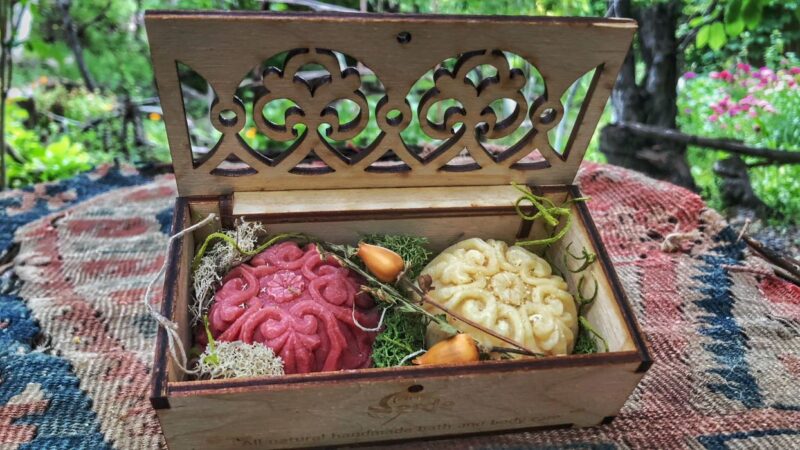
Her research provided little concrete results, but she was determined to prove what she was convinced of. When her students at Yerevan State University had to prepare their graduation papers, Nelli acted strategically: she divided the work between them and got a permit to use the labs at the Academician Emil Gabrielyan Scientific Center of Drug and Medical Technology Expertise. The results came in – and they were positive. One screening of the Getar and Geghanist rivers as well as in Lake Yerevan showed from 2 to 5 mkg/liter progesterone and hydrocortisone. “We mainly tested the waters in the fish farming area and found huge amounts of antibiotics and hormones used to stimulate the growth of the fish,” says Avetisyan.
Nelli also discovered triclosan and other chemical compounds used in soaps and detergents known as carcinogen, present in those findings. Since it did not look promising that the bureaucratic system would make major improvements, Nelli decided to use her own knowledge and the skills of a pharmacist and create a unique formula of soap – at that time the only one in the country.



